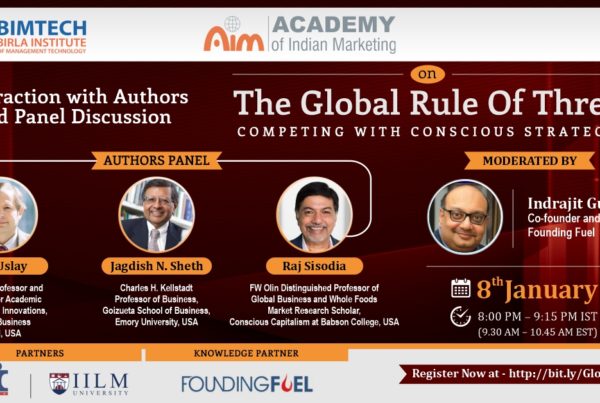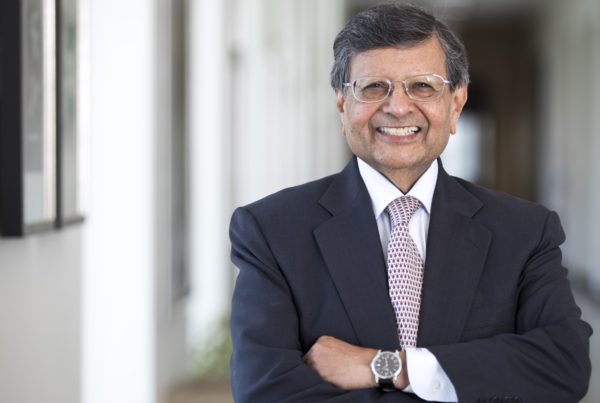Published: Jan 09, 2002 in Knowledge@Emory
Trust a media mogul to keep up with the fashions.
Gerald M. Levin rose to power at Time Warner by spotting cable’s potential early as CEO of HBO during the 1970s. In the mid-1980s, as chief strategist at Time Warner, he proposed to J. Richard Munro, then Time’s CEO, that the company acquire Turner Broadcasting System, a deal that Time Warner ultimately consumated in 1996. Four years later, as CEO of Time Warner, Levin shook up the business world when he teamed up with Steve Case, CEO of Internet darling America Online (AOL), to merge both companies to form AOL-Time Warner, a media powerhouse.
Now Levin, CEO of AOL Time Warner, has stunned Wall Street again with another surprise announcement, one which Emory professors say may be another important trend in American business – a decision to quit his job in order to seek “life’s poetry.” “Who I am and why I’m here can’t just be for this company,” the 62-year-old Levin explained recently. “I am not all that I appear. I need to reclaim my identity. I’m about to demonstrate the real me.”
Most professors interviewed by Knowledge@Emory dismissed the suggestion that his announcement was simply a matter of trying to put a good spin on a palace coup. “Clocks tick and faced with your own mortality…in this case, humanity’s mortality, I think it’s entirely possible that he had an epiphany of that sort,” says Andrea Hershatter, a lecturer in organization and management.
Don’t underestimate the strain of this kind of job, management experts say. As Levin said in a recent speech, being the CEO of the world’s largest entertainment company “wears thin after a while.” Hours are usually long, the pressure enormous. “There are lots of pressures in that job and lots of reasons people would want to step down,” says Andrew Ward, professor of organization and management.
Whatever Levin’s personal motivations, Emory management experts say, the decision does have some tactical political advantages. “By leaving at this time, he’s been able to handpick his successor, someone who’s going to pretty much carry on the organization the way he would, whereas if you stay to the point when you’re being thrown out or dragged out, you don’t have much bargaining power,” Ward explaines.
Competitive conditions in the media industry may make it a good time for Levin to step aside. Levin has been facing fallout from the AOL-Time Warner merger, which has failed to produce the 30% revenue growth he initially promised. Ted Turner, the company’s largest shareholder and founder of CNN, has been very public lately about his low regard for Levin’s leadership.
Beyond all that, Jagdish Sheth, professor of marketing, says that it’s important to keep in mind that the industry is rapidly consolidating. He predicted that in three to five years there may be only three major media and entertainment companies. The relentless deal-making required is likely to take a “24/7” commitment on the part of the CEO, Sheth says.
But Levin has said in interviews that his decision to retire stemmed from his reaction to September 11. “The world has changed,” Levin said in a recent speech, made before his announcement. “We have a new sense of the vulnerability of our society, of the fragility of our lives and of the presence and persistence of evil.”
Levin is not alone in his new sense of vulnerability, according to Hershatter. “In corporate America, we [usually] feel invulnerable, we feel all-powerful, we feel untouchable, and then you have September 11 and you realize how much of that is a façade, both literal structures and figurative structures that can explode at a moment’s notice. It’s a wakeup call,” she says.
Such a reaction is not surprising, according to Eugene Emory, professor of psychology at Emory University. “Given his stage in life, his economic situation, which is obviously very comfortable, and these latent tendencies to be somewhat humanistic and altruistic may come together to say, you know, there’s a better life, and I’m going to do something else,” he says.
Emory predicts more self-questioning and career reassessments in the wake of September 11. “Normally people say, well, I’ll put that off until I retire, I’ll put that off until such and such a date, and then they say, you know, I may not be here long enough to retire, can I do it now?”
It’s not the first shock Levin has had. In 1997, his son, 31-year-old New York City high-school teacher Jonathan Levin, was brutally murdered by a former student. Levin has said that he first began considering retirement after that tragedy.
Recovering from a shock such as a death in the family or September 11 is not simply a matter of “sensitivity and encounter groups here,” Emory cautions. “It’s something that’s deeper that needs to be dealt with, and that is, how can you make what you do on a daily basis consistent with your value system? And I think very often, in many walks of life, not just corporate, that what people are doing on a day-to-day basis isn’t necessarily consistent with their core values. And then you get dissonance, and the dissonance creates tension for people,” Emory says.
Bradd Shore, a professor of anthropology and director of Emory’s Center for Myth and Ritual in American Life, says that sociologist Emile Durkheim noted many years ago that suicide tends to peak at both the top and bottom end of the business cycle. “And that’s because in both cases, people become disconnected from the social world which gives them meaning and gives them identity,” Shore says.
For Americans, who usually define themselves by occupation, loss of one’s occupation can be devastating, Shore says. Less well known is the fact that a successful climb up the ladder can lead to a similar sense of dislocation. “The same kind of crisis can happen when you rise so rapidly that basically it doesn’t provide you with the kind of meaning you need,” he explains.
Marketing guru Joey Reiman, a senior research fellow in the Department of Psychiatry, wrote recently that in the wake of September 11, he expects that many people will “begin to reprioritize their own lives rather than endlessly retool their companies. The fast lane will give way to the vast lane. And `the poetry of life’ will become part of the new value chain.”
Hershatter, who is collaborating with Reiman on a book about what she calls corporate mindfulness – how to create companies that help employees find more meaning in their work – and thereby make the organization more profitable – saw a brighter side to all this. “Cyclically, it’s probably healthy to have this time for more reflection. We were definitely on a cycle of more-more-bigger-faster-better, which was just all about acquisition and growth without necessarily any value added,” she says.





